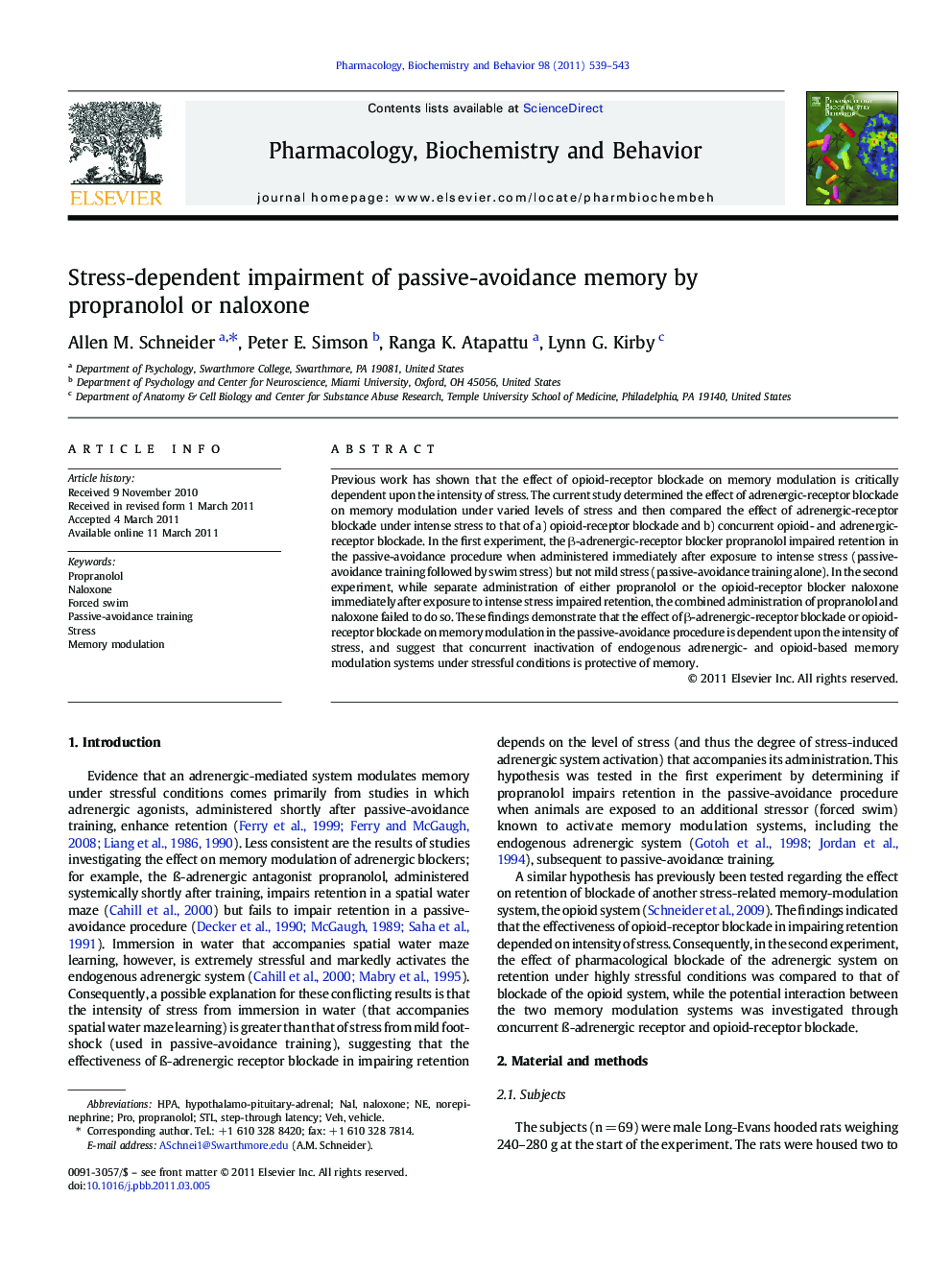| Article ID | Journal | Published Year | Pages | File Type |
|---|---|---|---|---|
| 2013352 | Pharmacology Biochemistry and Behavior | 2011 | 5 Pages |
Previous work has shown that the effect of opioid-receptor blockade on memory modulation is critically dependent upon the intensity of stress. The current study determined the effect of adrenergic-receptor blockade on memory modulation under varied levels of stress and then compared the effect of adrenergic-receptor blockade under intense stress to that of a) opioid-receptor blockade and b) concurrent opioid- and adrenergic-receptor blockade. In the first experiment, the β-adrenergic-receptor blocker propranolol impaired retention in the passive-avoidance procedure when administered immediately after exposure to intense stress (passive-avoidance training followed by swim stress) but not mild stress (passive-avoidance training alone). In the second experiment, while separate administration of either propranolol or the opioid-receptor blocker naloxone immediately after exposure to intense stress impaired retention, the combined administration of propranolol and naloxone failed to do so. These findings demonstrate that the effect of β-adrenergic-receptor blockade or opioid-receptor blockade on memory modulation in the passive-avoidance procedure is dependent upon the intensity of stress, and suggest that concurrent inactivation of endogenous adrenergic- and opioid-based memory modulation systems under stressful conditions is protective of memory.
Research highlights► β-receptor blockade impairs retention under intense but not mild stress. ► Opioid-receptor blockade impairs retention under intense stress. ► Combined β-and opioid-receptor blockade doesn't impair retention under intense stress. ► The effect of β-receptor blockade on memory depends on stress intensity. ► Concurrent inactivation of β-NE and opioid modulation systems protects memory.
